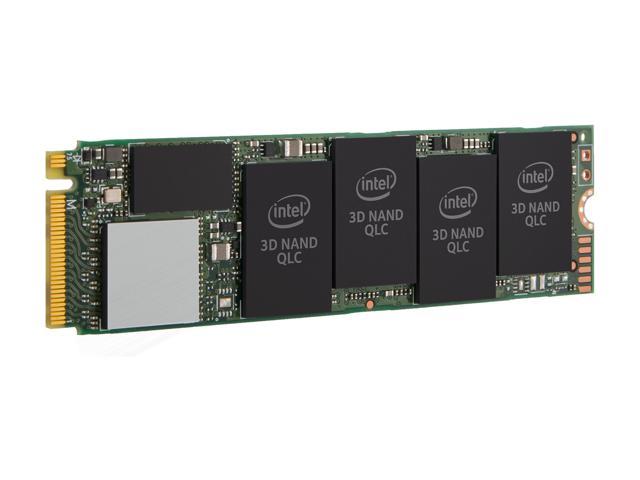Size Does Matter: Intel SSD 660p 2TB Drops to $177
Many would agree that a SSD is the best single upgrade for any PC. If you still haven't entered the world of solid-state storage, now's a very good time to do so. The Intel SSD 660p 2TB, which debuted at $399.99, can now be yours for just $176.99 if you use the promo code "EMCTBVU47" at Newegg. You must be subscribed to the Newegg newsletter for the code to work.
The Intel SSD 660p 2TB conforms to the compact M.2 2280 form factor, so it's important to verify that your PC or laptop has a suitable PCIe 3.0 x4 M.2 port to accommodate this baby. The drive is built around Silicon Motion's SM2263 NVMe SSD controller and Intel's own 64-layer 3D QLC (quad-level cell) NAND chips.
On the performance side, the Intel SSD 660p 2TB offers sequential read and write speeds up to 1,800 MB/s and random read and write speeds up to 220,000 IOPS. If we look at the numbers, the SSD 660p is easily three times as fast as the best SATA III SSD.
However, the drive's current price is what really makes it a solid deal. At $176.99, you're only paying around 9 cents per gigabyte, making the Intel SSD 660p 2TB the cheapest 2TB SSD available, at least for the duration of the sale.
QLC NAND doesn't have the best rep in the storage industry, but this SSD is rated with an endurance of 400 TBW (terabytes written) and backed by a limited five-year warranty. With average usage, the drive should serve you well for several years to come.
Should You Buy This SSD?
As usual, we highly recommend you check out our in-depth Intel SSD 660p 1TB review before investing in this product.
For more help, you can find everything you need to know about how to buy the right SSD in our SSD Buying Guide. We've also curated a list of our favorite SSDs, based on our rigorous testing, on our Best SSDs page.
Get Tom's Hardware's best news and in-depth reviews, straight to your inbox.

Zhiye Liu is a news editor, memory reviewer, and SSD tester at Tom’s Hardware. Although he loves everything that’s hardware, he has a soft spot for CPUs, GPUs, and RAM.
